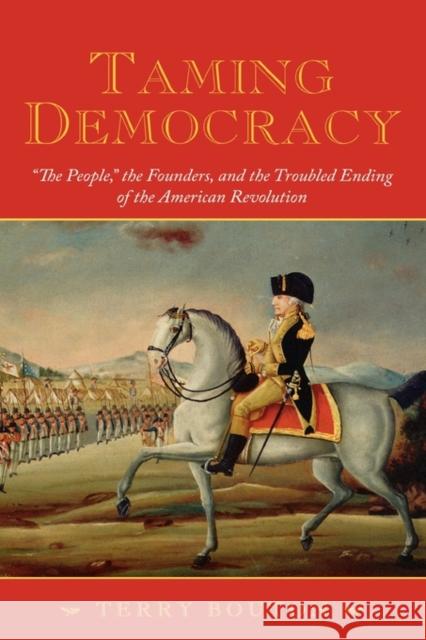Taming Democracy: The People, the Founders, and the Troubled Ending of the American Revolution » książka
topmenu
Taming Democracy: The People, the Founders, and the Troubled Ending of the American Revolution
ISBN-13: 9780195306651 / Angielski / Twarda / 2007 / 344 str.
Taming Democracy: The People, the Founders, and the Troubled Ending of the American Revolution
ISBN-13: 9780195306651 / Angielski / Twarda / 2007 / 344 str.
cena 479,96 zł
(netto: 457,10 VAT: 5%)
Najniższa cena z 30 dni: 440,58 zł
(netto: 457,10 VAT: 5%)
Najniższa cena z 30 dni: 440,58 zł
Termin realizacji zamówienia:
ok. 30 dni roboczych
Bez gwarancji dostawy przed świętami
ok. 30 dni roboczych
Bez gwarancji dostawy przed świętami
Darmowa dostawa!
Americans are fond of reflecting upon the Founding Fathers, the noble group of men who came together to force out the tyranny of the British and bring democracy to the land. Unfortunately, as Terry Bouton shows in this highly provocative first book, the Revolutionary elite often seemed as determined to squash democracy after the war as they were to support it before.
Centering on Pennsylvania, the symbolic and logistical center of the Revolution, Bouton shows how this radical shift in ideology spelled tragedy for hundreds of common people. Leading up to the Revolution, Pennsylvanians were united in their opinion that "the people" (i.e. white men) should be given access to the political system, and that some degree of wealth equality (i.e. among white men) was required to ensure that political freedom prevailed. As the war ended, Pennsylvania's elites began brushing aside these ideas, using their political power to pass laws to enrich their own estates and hinder political organization by their opponents. By the 1780s, they had reenacted many of the same laws that they had gone to war to abolish, returning Pennsylvania to a state of economic depression and political hegemony. This unhappy situation led directly to the Whiskey and Fries rebellions, popular uprisings both put down by federal armies. Bouton's work reveals a unique perspective, showing intimately how the war and the events that followed affected poor farmers and working people. Bouton introduces us to unsung heroes from this time--farmers, weavers, and tailors who put their lives on hold to fight to save democracy from the forces of "united avarice." We also get a starkly new look at some familiar characters from the Revolution, including Benjamin Franklin, Alexander Hamilton, and George Washington, who Bouton strives to make readers see as real, flawed people, blinded by their own sense of entitlement. Taming Democracy represents a turning point in how we view the outcomes of the Revolutionary War and the motivations of the powerful men who led it. Its eye-opening revelations and insights make it an essential read for all readers with a passion for uncovering the true history of America.










